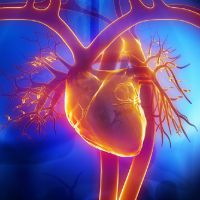Testosterone Supplementation Beneficial to Men with Heart Disease
Posted on None in Men’s Health Hormone Replacement Therapy Testosterone
New study finds that testosterone supplementation enables a reduction in the risks of major cardiovascular events, such as strokes, heart attacks, and death.
In a recent study, a research team from the Intermountain Medical Center Heart Institute studied 755 male patients, ranging from 58-78 years, who all had severe coronary artery disease, the most common type of heart disease. They were separated into three different groups, receiving varied doses of testosterone, administered intravenously or by gel. At the end of the first year, 64 patients who weren’t taking any testosterone supplements had serious adverse cardiovascular events, whereas only 12 who were taking medium doses of testosterone and 9 who were taking high doses did. At the end of 3 years, 125 patients who had not received testosterone therapy suffered severe cardiovascular events, whereas only 38 medium-dose and 22 high-patients did. Patients who were given testosterone as part of their follow-up treatment did much better than patients who had not been given testosterone supplementation. The non-testosterone-therapy patients were 80 percent more likely to suffer an adverse event. “Although this study indicates that hypo-androgenic men with coronary artery disease might actually be protected by testosterone replacement, this is an observational study that doesn’t provide enough evidence to justify changing treatment recommendations,” said Dr. Muhlestein, co-director of cardiovascular research at the Intermountain Medical Center Heart Institute. “It does, however, substantiate the need for a randomized clinical trial that can confirm or refute the results of this study.” This new study confirms the findings of a previous study from the Intermountain Medical Center Heart Institute, which found that testosterone therapy did not increase the risk of experiencing a heart attack or stroke for men with low testosterone levels and no prior history of heart disease.

Comments are closed for this article!